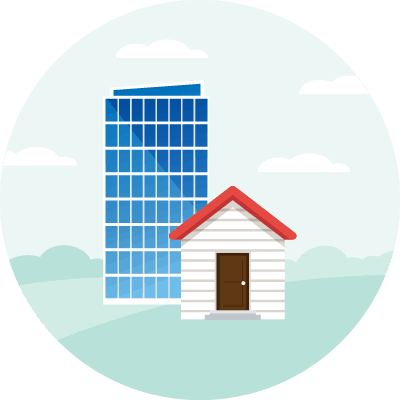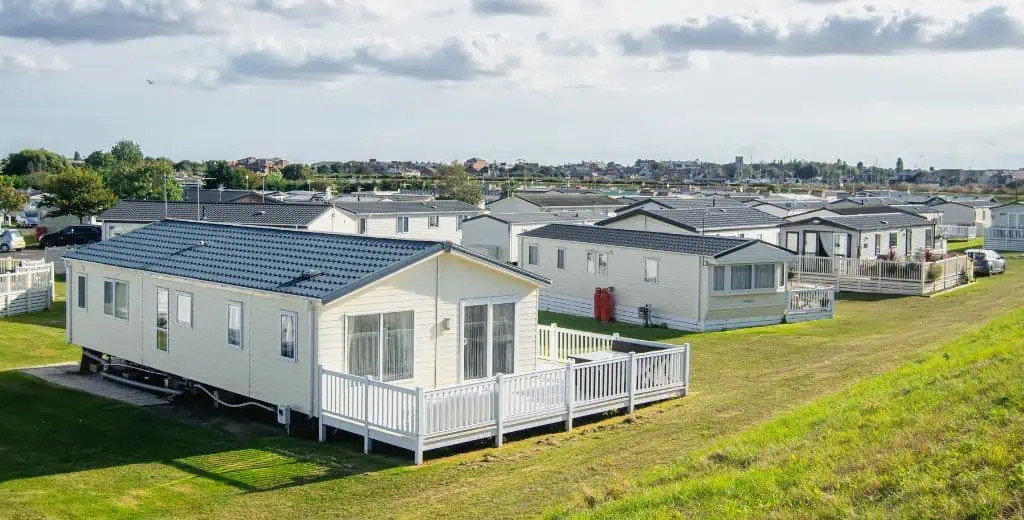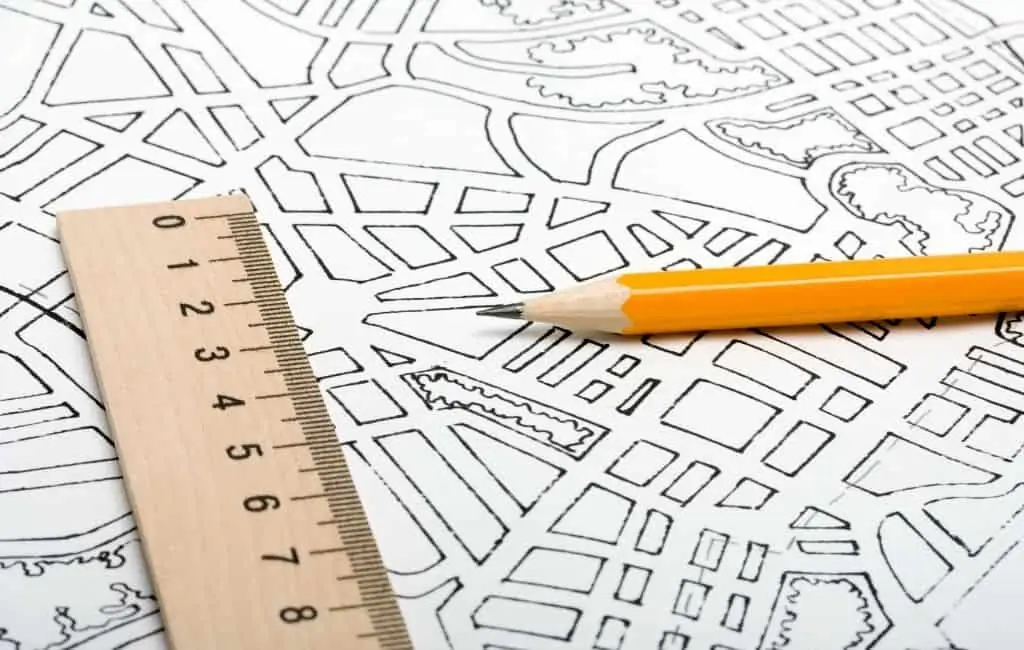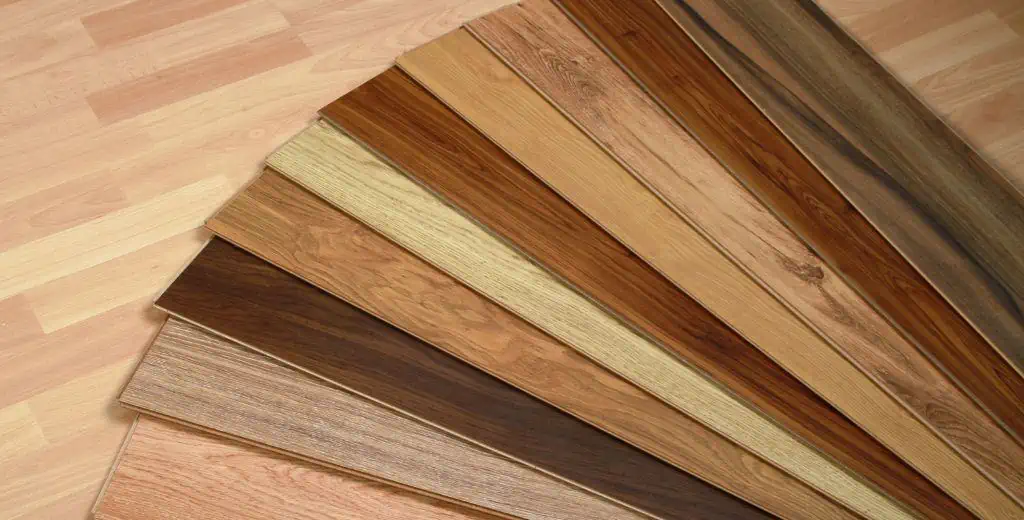What Are Mobile Homes?
Shortcuts
- Mobile homes are prefabricated homes built in a factory and designed to be transported to their final location.
- They come in single-wide, double-wide, and triple-wide sizes, offering various customization options.
- Costs vary by size, condition, and location, with single-wides being the most budget-friendly.
- Benefits include lower prices and quick move-in, while drawbacks involve financing challenges and possible depreciation.
- Mobile homes built after 1976 are called “manufactured homes” as designated by the Department of Housing and Urban Development.
Understanding Mobile Homes
Mobile homes, also known as manufactured homes, are factory-built dwellings designed for transport and placement in designated areas like mobile home parks or private land. They offer a more affordable housing solution compared to traditional site-built houses.
While there are advantages like quicker construction times and potential community living, factors like financing, potential depreciation, and location restrictions are important aspects to consider before deciding on a mobile home.
The concept of mobile homes emerged in response to the rapidly increasing demand for affordable housing after World War II. The roots of mobile homes trace back to James and Laura Sweet from Prichard, Alabama, who proposed the idea in the late 1940s Initially, trailers were primarily used as temporary living quarters during wartime or natural disasters. As production techniques improved, mobile homes became increasingly sophisticated, offering permanent residential solutions.
Types of Mobile Homes
There are three primary categories of mobile homes:
- Single-Wide: Typically around 18 feet wide, single-wides usually sit on a single chassis. They are generally easier to transport and set up.
- Double-Wide: Wider than single-wides, double-wides consist of two connected sections, each approximately 18 feet wide. They offer increased interior space and amenities.
- Triple-Wide: Rarely seen, triple-wides combine three 18-foot sections to create even larger living spaces.
Mobile Homes vs. Traditional Homes Comparison
Mobile homes stand apart from traditional site-built houses in several key ways:
- Construction: Mobile homes are constructed according to Department of Housing and Urban Development (HUD) standards in controlled factory environments.
- Transportation: These homes are built on permanent chassis, enabling them to be moved to their final location.
- Placement: Mobile homes are typically located in designated mobile home parks or communities, but they may also be placed on private land.
- Regulation: Mobile homes constructed after 1976 adhere to federal HUD building codes, ensuring a certain level of quality and safety.
Mobile Homes vs. Manufactured and Modular Homes
The main distinction between a manufactured home and a mobile home lies in the date of construction. Homes built before June 15, 1976 are considered mobile homes, while those built after that date are classified as manufactured homes. The HUD regulates mobile and manufactured homes.
In general usage, though, most people often refer to mobile homes as trailer homes. This term has recently fallen out of use due to its pejorative connotation.
How Much Does a Mobile Home Cost?
The cost of buying a mobile home can vary significantly based on factors such as size, design, condition, location, and customization. On average, single-wide homes cost the least, with a triple-wide design being the most expensive (sometimes over twice the cost of a single-wide).
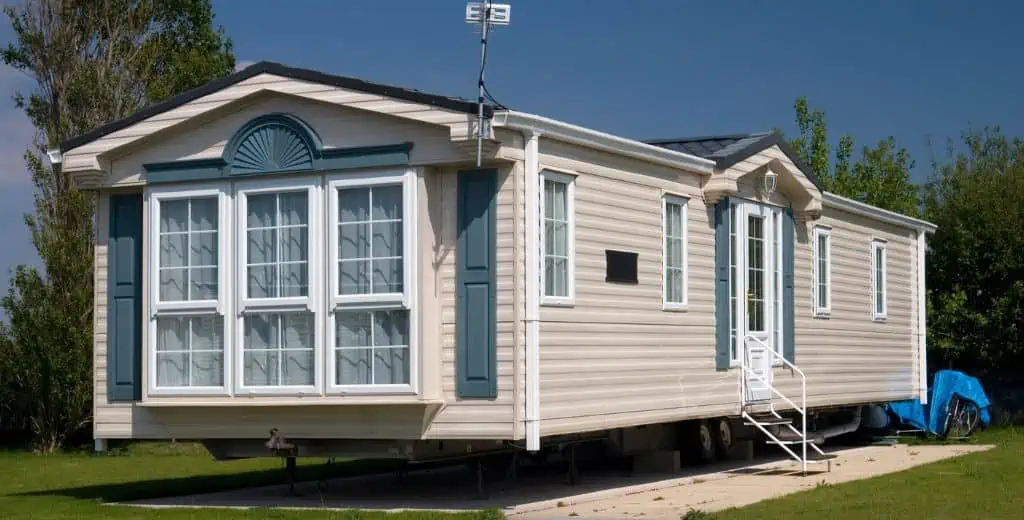
A typical single-wide, elevated.
These factors also play a role in determining the final cost of a mobile home:
- Size and Floor Plan: Square footage, number of bedrooms and bathrooms, and overall layout contribute to value.
- Age and Condition: A well-maintained newer mobile home will generally be worth more than an older home in poor condition.
- Features and Upgrades: Updated finishes, appliances, and additions can increase a mobile home’s value.
- Location: Mobile homes within desirable communities or locations with favorable land ownership terms tend to be of greater value.
Is a Mobile Home Right For You?
When making your decision, ponder these points:
- Understand what a mobile home is compared to other types of homes.
- Evaluate the costs associated with buying a mobile home. If you’re seeking a more affordable housing option, a mobile home could be a good fit.
- Consider factors such as the number of bedrooms needed, floor plan suitability, and your overall space requirements.
- Do you enjoy community living or prefer a more independent setting?
- Do you intend to relocate frequently or want a potential investment that may appreciate in value over time?
Other equally important considerations include:
Zoning Regulations and Permits
Zoning regulations govern the placement of mobile homes within municipal boundaries. Some communities restrict the placement of mobile homes, while others allow them under certain conditions. Others use a special type of zoning called “floating zones” for mobile homes anchored to a residential area meeting specified requirements.
Before setting up a mobile home, it is vital to check local zoning laws and obtain all necessary permits.
Resale Market and Insurance
Reselling a mobile home follows different rules than selling a traditional house, especially since mobile homes typically depreciate rather than appreciate. Additionally, insuring a mobile home differs from standard home insurance policies.
In any case, buyers should research the resale market carefully, whether they want to buy a mobile home for personal reasons or to understand the potential return on investment.
RELATED: 8 Ways to Make Money With Mobile Homes Inside Mobile Home Parks
Pros and Cons of Mobile Homes
Pros
- Affordability: Mobile homes are generally a more economical housing solution compared to traditional homes.
- Faster Move-In Time: Factory construction streamlines the building process, often making it quicker to move into a mobile home. From placing an order to moving in, it could take approximately two to four months for someone to move into a mobile home.
- Community Living: Mobile home parks foster a sense of community and may offer amenities like pools or clubhouses.
Cons
- Financing: Securing financing for mobile homes can be more complex than traditional mortgages because mobile homes are treated differently under banking regulations. Mobile homes may not qualify for conventional mortgages unless they are permanently affixed to land that a buyer owns.
- Depreciation: Mobile homes may depreciate in value over time, unlike some site-built homes that can appreciate.
- Location Restrictions: Zoning regulations and mobile home park rules can limit where mobile homes can be placed.
Frequently Asked Questions: Mobile Homes
1. Do mobile homes need special insurance?
Yes, mobile homes require special insurance due to their non-standard construction and unique risks. A mobile home insurance policy typically includes coverage for the structure itself, as well as the contents inside the home.
Standard home insurance policies are not adequate for mobile homes since they are constructed using different materials and are often situated in parks or campgrounds with unique liabilities.
2. Can I customize a mobile home?
Many mobile home manufacturers offer various customization options during the building process. This might include choices in floor plans, finishes, appliances, and fixtures. Additionally, renovations and upgrades are possible after purchase, with varying degrees of complexity.
3. Can I get a mortgage for a mobile home?
Yes, you can obtain a mortgage for a mobile home, though the process and eligibility requirements differ from traditional mortgages. For example, some lenders may need you to own the land the mobile home is on to qualify for a conventional mortgage.
There are different types of financing options available, including chattel loans (for mobile homes not permanently attached to land), FHA loans (government-backed loans), and VA loans (for eligible veterans).
As with any loan, your creditworthiness and income will play a role in the approval process.
